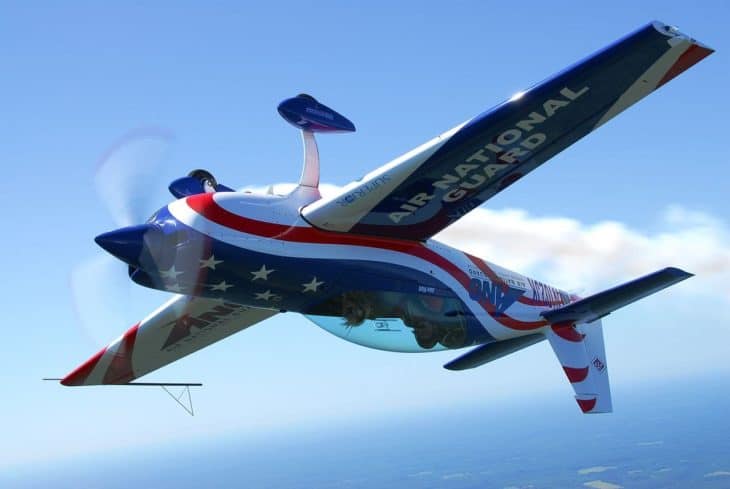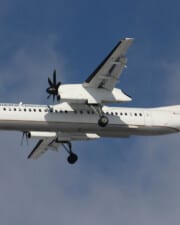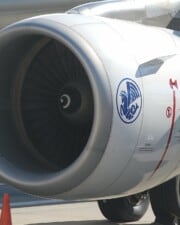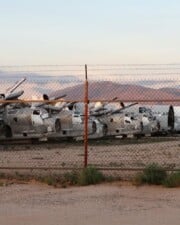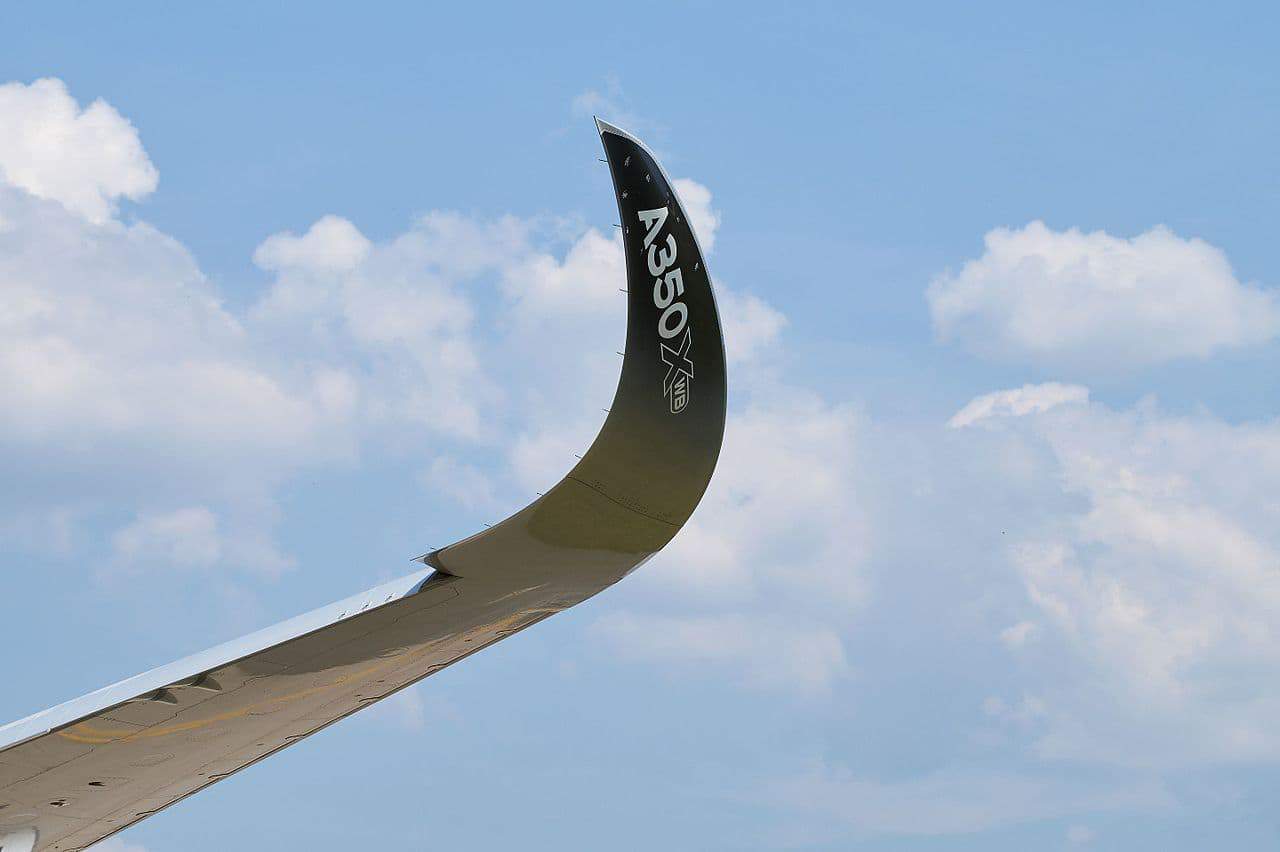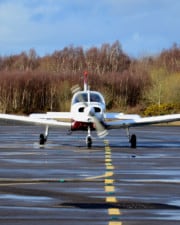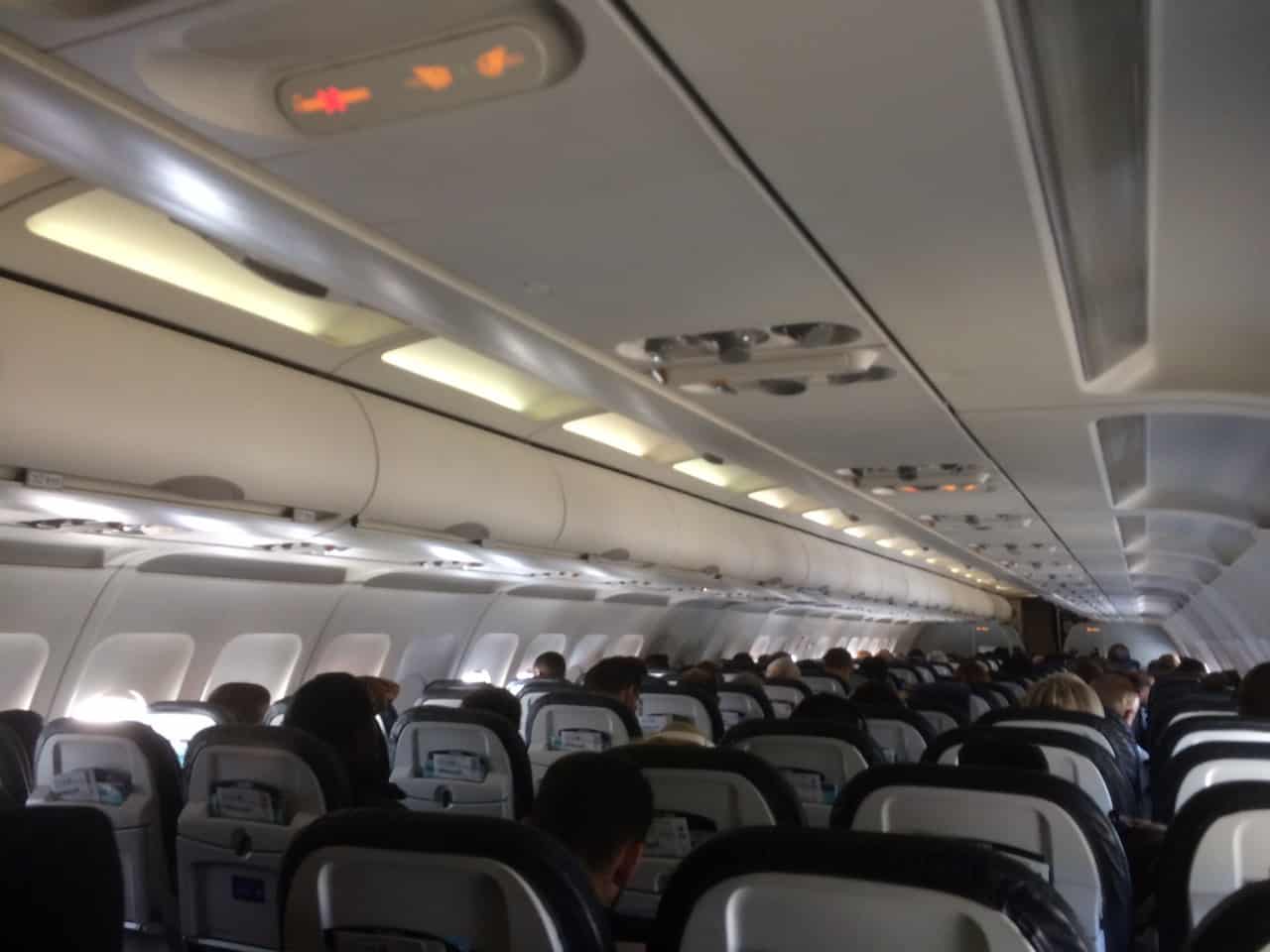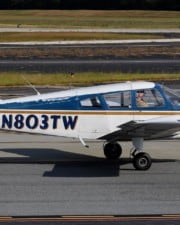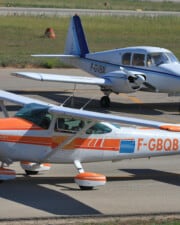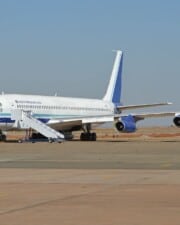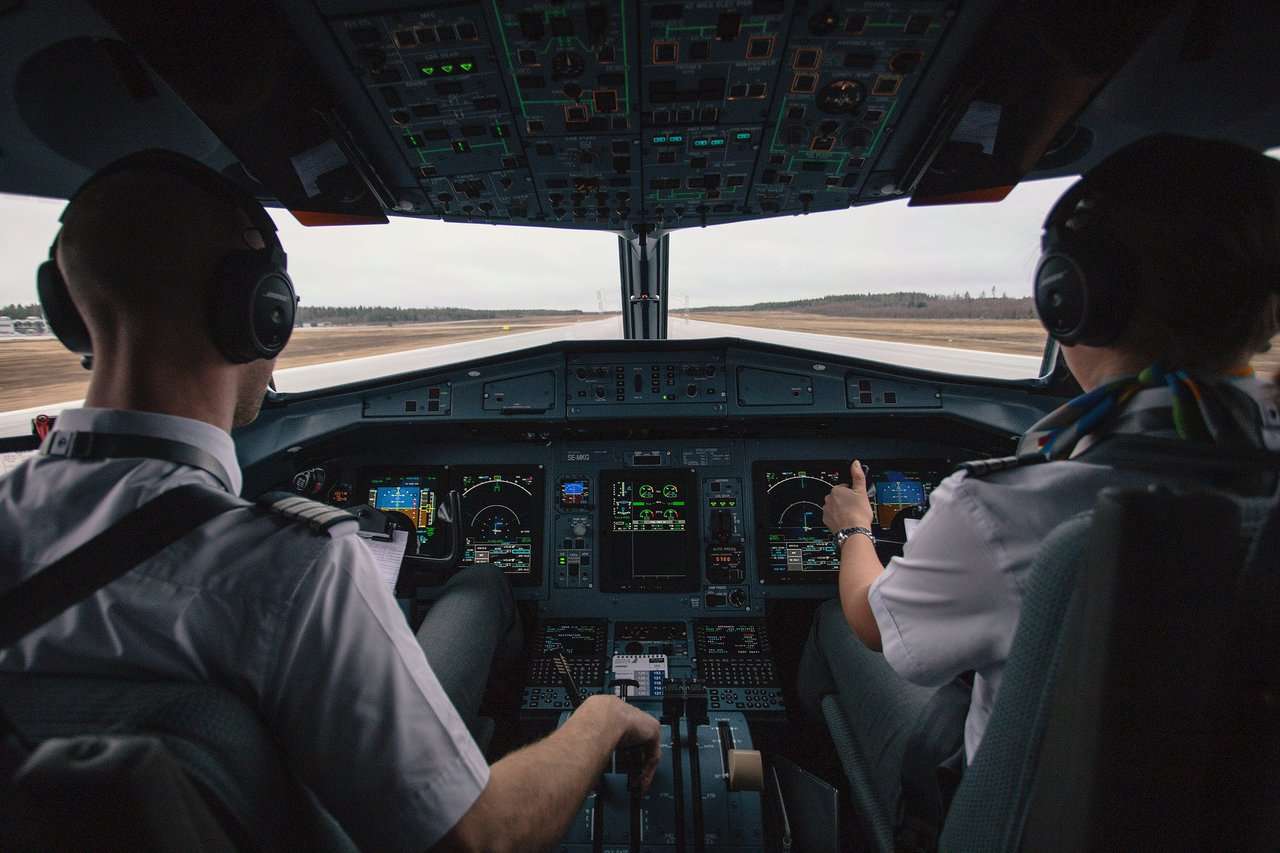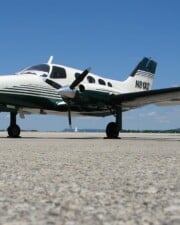From Greek mythology to the Wright brothers to NASA, people have been spellbound by flight. They’ve also been fascinated by flying upside down and pushing the boundaries of airborne adventures. Upside-down flight been used in combat, air shows and just for thrills. Here’s how airplanes do this amazing, gravity-defying maneuver that is upside down flight.
Table of Contents
How Can Airplanes Fly Upside Down?
Simply put, when a plane’s nose is up and the tail is down, enough lift is produced by the wings to help the plane flip upside down (invert). The air flowing over the wing is bent down, and the plane goes up. The airplane’s engine must also be powerful enough to keep it aloft.
Can Commercial Airplanes Fly Upside Down?
In 2012, a movie was released called Flight. It starred Denzel Washington as an airline pilot who rolled his 150-seat MD-88 jet plane to avert an out-of-control nosedive. He ordered his co-pilot to throw out spoilers, flaps and landing gears to achieve aerodynamic drag as he reduced acceleration.
And, in the movie, he saved the day.

However, in reality, the freefall’s speed would have placed so much pressure on the airplane’s surfaces that they would have snapped off. The hydraulics would have failed.
An inverted jet liner’s fuel would have also dwindled from the engine’s combustion chambers, since it’s typically drawn from the bottom of the wings.
This triggers a flameout, which means that the engine is starved for fuel, its oil pressure plummets, and it seizes up.
McDonnell Douglas, manufacturers of the plane, didn’t mince words when the movie was released: “The MD-80 series cannot sustain inverted flight. The MD-80, as with all commercial airliners, was designed to fly upright. Commercial airliners are only tested and certified for upright flight.”
Defying The Odds
However, there were two pilots who did defy the odds and fly a commercial plane upside down.
In 1955, Boeing test pilot, Alvin “Tex” Johnson, did not one, but two barrel rolls, a mere 500 feet above Seattle’s Lake Washington, in a Dash 80, the $20 million prototype of the massive Boeing 707.
The spectacle not only gained Johnson acclaim, but enticed Pan Am to order 20 707s only one month after the event. The 707 became the first certified jet transportation in the United States.

Another commercial jet was rolled in 1994, but under much graver circumstances. A McDonnell Douglas FedEx DC-10, traveling from Memphis to San Jose, was hijacked by a disgruntled FedEx employee.
First Officer Jim Tucker and other crew members began grappling with the hijacker, when Tucker pulled the control wheel and yanked the plane onto its back at 400 miles per hour. The maneuver threw the criminal off guard so that he could be subdued.
How are Planes Built to Fly Upside Down?
Airplanes that are specifically designed for aerial acrobatics are outfitted with special equipment to help them flip belly up. These include:
Symmetrical Wings
Most types of airplane wings are flat on the bottom, but curved on top. However, symmetrical wings, which are curved on both sides, handle airflow identically, whether the plane is right-side up or upside down.
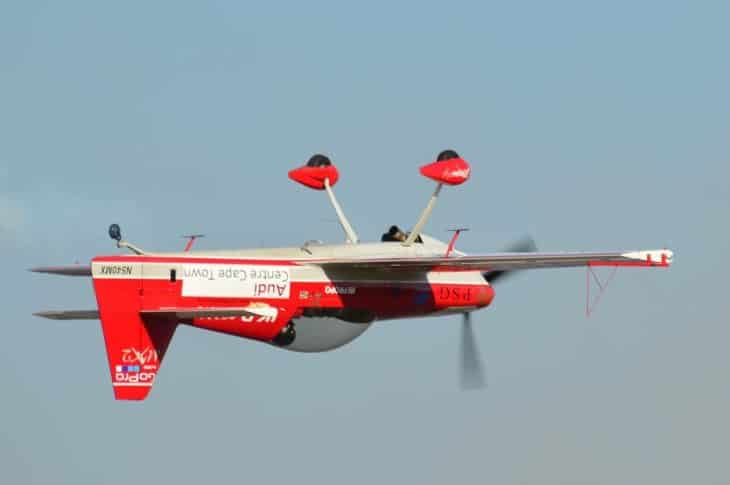
This is called the angle of attack. It can be likened to sticking your hand out of a car window. If you tilt your hand, you can feel the force upwards or downwards. This is the same for a plane.
Unique Fuel Systems
Aerobatic airplanes, also called stunt planes, have inverted fuel mechanisms that use fuel injection instead of a carburetor. A regular carburetor can’t measure fuel when it’s turned upside down and will cut off the flow.
On the other hand, a fuel injector distributes a steady, consistent mixture of fuel and air, regardless of the plane’s position.
Some of these planes have a header tank, which is a separate tank for inverted flying. During a regular flight, gravity draws fuel into the tank. For upside down flights, the header tank is situated at the top of the engine, which sends fuel directly to the injectors.
Inverted Oil Systems
An airplane designed for upside down flight has what’s called a dry sump.
The engine itself doesn’t store any oil. Instead, the oil is contained in a separate tank and is pumped through the engine whether the plane is upright or not.
Can Fighter Jets Fly Upside Down?
Fighter jets epitomize aircraft that can perform breathtaking maneuvers, including inversion. They can pull off these tricks because of sophisticated thrust vectoring and super-maneuverability.
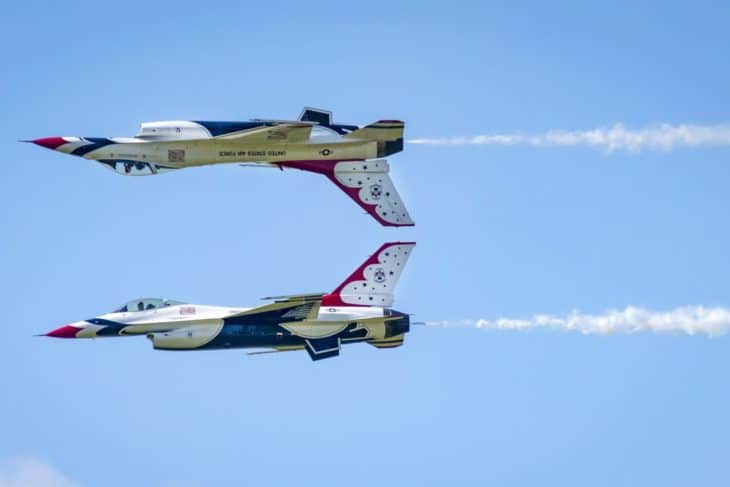
Astoundingly, they are so muscular and agile that they can fly without solely depending on aerodynamics.
During World War II, Germany’s fighter jet, the Messerschmitt Bf 109, had the advantage of exceptional maneuverability and speed. Unlike British engines, the Bf 109 could fly upside down or perform G force-defying moves without the engine cutting out.
The US Navy’s famous Blue Angels fighter jets are renowned for flying in formation while flaunting spectacular stunts, including upside-down flight.
Can Helicopters Fly Upside Down?
You’ve probably seen radio-controlled helicopters effortlessly buzzing around upside down. A real helicopter, though, is a very different story.
The current design of helicopters prevents them from flying upside down without an overhaul of the rotor mechanism. Pilots may be able to flip a helicopter, but only for a few seconds.

However, during the 2019 Memorial Day Bethpage Air Show over downtown Manhattan, the Red Bull Aerobatic Helicopter (the only helicopter designed specifically for stunt flying) did the impossible. It did forward and backward flips, along with barrel rolls, loops and nosedives.
Related Posts
